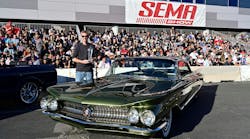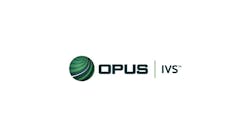The U.S. House of Representatives Committee on the Judiciary held a hearing on “Design Patents and Auto Replacement Parts” on March 22, focusing on Rep. Zoe Lofgren’s, D-Calif., “Access to Repair Parts Act,” H.R. 3059.
Witnesses at the hearing included:
• Jack Gillis, director of Public Affairs, Consumer Federation of America (CFA), Washington, D.C.
• Damian Porcari, director, Enforcement and Licensing, Ford Global Technologies, LLC, Dearborn, Mich.
• Robert C. Passmore, senior director, Personal Lines, Property Casualty Insurers Association of America, Des Plaines, Ill.
• Perry J. Saidman, principal, Saidman Design Law Group, Silver Spring, Md.
Lofgren opened the hearing by stating the purpose for her bill – prevent price gouging combined with auto manufacturers not needing a monopoly over crash parts to spur innovation – but also recognized that “intellectual property rights exist to create incentives for innovation – that’s why it’s in our constitution … these government-created exclusive rights are crucial to the legal framework that promotes innovation in our country.”
Gillis, who is also the head of the Certified Automotive Parts Association (CAPA), supports Lofgren’s bill. Gillis said, “For over 25 years, consumers have benefited from competition, albeit limited, between car company brand replacement parts and independently branded parts. Such competition, where it exists, lowers prices, provides choices and improves quality.”
Gillis’ main reasons for supporting H.R. 3059 follow:
• Elimination of competition will increase the cost of repairs.
• Eliminating competition will increase insurance premiums for consumers.
• Eliminating competition in crash parts could diminish safety.
• Eliminating competition will result in more “totals.”
• Eliminating competition protects the automakers’ “double whammy.” Gillis described the automakers’ “double whammy” as meaning “not only will the lack of competition allow car companies to charge whatever they want for the parts we need to fix our cars, but when they charge so much that the car is ‘totaled,’ our only recourse is to go back to them and buy another one of their products.”
• Congress can preserve consumer access to affordable, competitive and quality crash parts by adopting a “repair clause” in the design patent law.
Porcari testified against H.R. 3059, stating: “Copycat parts hurt Ford, our employees, our suppliers, our dealers and our customers. Ford customers rarely know that they are getting copycat parts because their use is frequently concealed. Customers purchase a Ford vehicle for many reasons, including its features, quality, styling and value … The bill’s proponents present no basis for treating visible repair parts differently than other items protected by intellectual property. The copyists want to eliminate design patent protection because that’s what they make. As soon as their business model includes engines, brakes and air bags, we will likely hear the call for the elimination of patent protection on all types of replacement parts. And it won’t stop with cars. The denial of intellectual property rights will always reduce copiers’ costs.”
Porcari offered another reason for opposing H.R. 3059, saying, “Some background about the insurance industry will illuminate what’s really spurring foreign parts copiers and unscrupulous insurance companies. Ford provides insurance companies with its genuine Ford replacement part pricing for every new Ford vehicle. Insurance companies use genuine Ford replacement part prices to set their insurance rates. After state regulators approve these rates, insurance companies then refuse to pay for genuine Ford parts and steer body shops to use cheap, copycat parts … This entire discussion about consumer choice and right to repair is merely a distraction from the basic unethical business practice of pricing insurance premiums and using genuine Ford parts and then giving consumers cheap foreign parts.”
The Automotive Service Association (ASA) opposes H.R. 3059 because it makes no assurances for the quality and safety of non-original equipment manufactured (OEM) parts. ASA sent a letter, along with other associations, opposing Lofgren’s bill in 2009. ASA has also provided a draft letter for repairers to send to their representatives opposing H.R. 3059.
To learn more about this issue, view the text of H.R. 3059 and testimony from the hearing, or to send a letter to Congress in opposition to this parts legislation, visit ASA’s legislative Web site at www.TakingTheHill.com.

